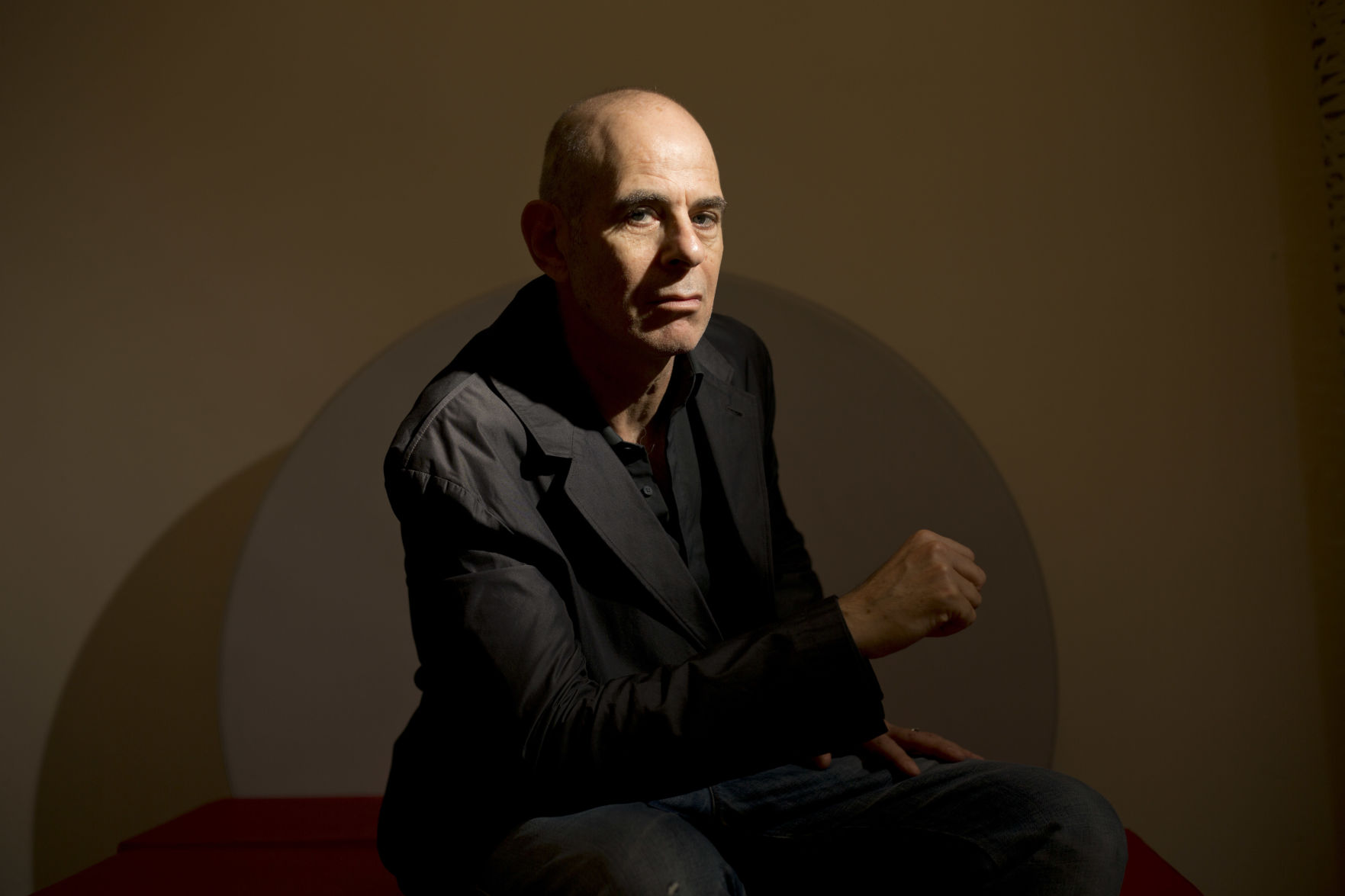JERUSALEM (AP) — Israel’s contender for this year’s foreign-language Oscar has swept local film awards and scored high honors at the Venice Film Festival. But before it even hit the silver screen at home, Samuel Maoz’s “Foxtrot,” a drama exploring
JERUSALEM (AP) — Israel’s contender for this year’s foreign-language Oscar has swept local film awards and scored high honors at the Venice Film Festival.
But before it even hit the silver screen at home, Samuel Maoz’s “Foxtrot,” a drama exploring Israel’s West Bank occupation and the modern Israeli psyche, has found itself caught in the crossfire of a raging culture war.
Culture Minister Miri Regev’s beef with Foxtrot is part of her ongoing battle with artists perceived as being critical of the Israeli government. Since taking office in 2015, Regev has moved to cut government funding to theaters and artists deemed disloyal to the state and troupes that refuse to perform in West Bank settlements.
Foxtrot plays out in three acts. Its title refers both to the name of an army checkpoint depicted in the movie and the dance, whose circular movement alludes to the cycles of generational trauma.
Act one follows the lives of an Israeli family after the parents learn that their son, a soldier, was killed in action. In a country where military service is mandatory for most Jews when they turn 18, the opening scene with the announcement of the young man’s death is the epitome of many Israeli parents’ worst fears.
Act two jumps back in time, to the young man’s military service and an unglorified depiction of Israeli army life at a remote checkpoint — the tedium, the muck, the misery.
Though Foxtrot never mentions Palestinians by name, and the people stopped by the soldiers at the checkpoint never utter a word, the film obliquely criticizes Israel’s occupation of the West Bank as unjust, futile and morally corrupting.
The soldiers’ shipping container barracks is gradually sinking in the mud, a metaphor for the country as a whole.
“We’re tilting,” one soldier says after rolling a can of processed meat to gauge the barracks’ angle. “If we’re tilting then eventually we’ll turn over and sink. When it happens it’ll happen suddenly. I don’t know if I’ll have enough time to say ‘I told you so,’ so I’m telling you now.”
Act three revisits the parents a year after their son’s death and explores the way they relate to grief and loss.
Foxtrot was nominated for Best Film in Venice, where it won the runner-up Grand Jury Prize in September. It then swept the Ophir Awards, Israel’s most prestigious film honors, taking eight categories, including best film. The winner of the Ophir Best Film is submitted as the country’s Oscar submission.
Since 1964, 10 Israeli films have been nominated for the Academy Award’s best foreign film but none won.
Shortly after its Venice award, Regev — a former army spokeswoman and military censor — appeared in television interviews railing against Foxtrot, while admitting she hadn’t actually seen it.
She wrote on Facebook that she was “ashamed” that the Israeli film academy celebrated Foxtrot, “a film that chose to slander the Israel Defense Forces.” She later broadcast a speech on her Facebook page saying Foxtrot aimed to “destroy the biggest celebration in the 20th century, the state of Israel,” and vowed to cut government funding of films.
Foxtrot received 14 percent of its funding from the government sponsored Israeli Film Fund, with the remainder coming from assistance from France and Germany.
The film explores a number of issues in Israeli society, from the lingering effects of the Holocaust, to Israeli machismo and the role of Jewish tradition among secular Israelis.
But the scene that apparently raised Regev’s hackles shows Israeli soldiers at a checkpoint accidentally killing a carful of innocent civilians, and the army’s subsequent cover-up of the incident in the most literal fashion — with a bulldozer.
Maoz dismissed Regev’s criticism in an interview with the Hebrew daily Haaretz, saying the scene was allegorical and meant to show how Israeli society “prefers to bury the truth in the mud we created, instead of dealing with it and asking ourselves piercing questions.”
“It may be that the IDF is a moral army,” he said, echoing a common refrain voiced by military commanders. “But the experience of war doesn’t truly allow you to be moral.”
Maoz himself served in the Israeli tank corps in Lebanon in the 1980s. His 2009 film “Lebanon,” which also scooped up awards in Venice that year, was a largely autobiographical account based on Maoz’s wartime experience.
Celebrated Israeli actor Lior Ashkenazi, who starred in the 2011 Oscar-nominated film “Footnote” and plays Foxtrot’s troubled protagonist, swatted back at Regev.
“If the minister had read Chekhov, she would understand what metaphor is,” Ashkenazi said, referring to Regev’s proud declaration in 2015 that she never read the Russian author, seen as a symbol of the country’s European-educated elites. “If the minister had read Chekhov, perhaps she would know what allegory is.”
Regev has had a fraught relationship with Israel’s cultural elite since taking office.
She has attempted to cut funding to theaters that perform works sympathetic to the Palestinians, and even tried to meddle in the playlist of Israel’s most popular radio station, saying it was snubbing Middle Eastern-influenced music popular with her political base in favor of mainstream Western-style pop. Critics accuse her of attempting to force Israeli artists to conform to her political ideology.
Maoz said the purpose of his art is “not to reflect reality, but to express it, to exaggerate it, to radicalize or distort it — and that’s in order to convey a message, to arouse a reaction, to open a discussion, to create dialogue.”
Foxtrot is slated for a limited release in the United States on March 2, two days before the Academy Awards ceremony.



